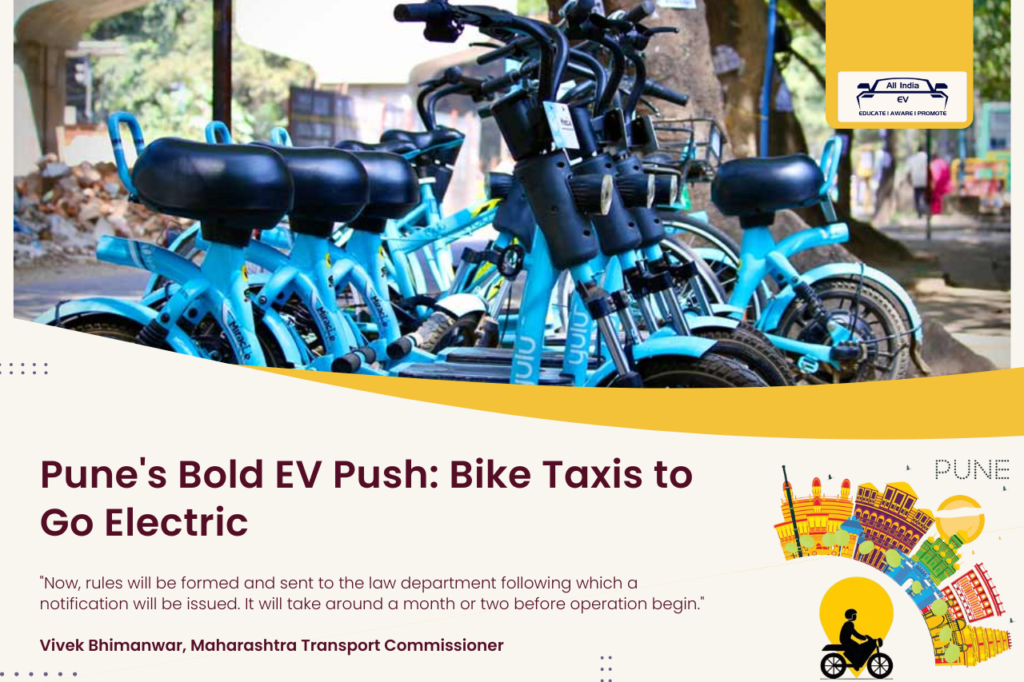
E-Transport in Kolhapur to Aid Devotees Visiting Mahalaxmi Temple, Says Sanjiv Bhor
In a move aimed at accelerating the adoption of electric mobility, the Maharashtra government has given the green light to operate bike taxis—but with a condition: only electric two-wheelers will be permitted under the scheme. While the decision aligns with the state’s long-term green mobility goals, it has sparked concerns among gig workers and industry aggregators over its feasibility.
We welcome every policy that encourages sustainable transportation. However, ground-level implementation needs to be inclusive and economically viable to ensure long-term success.
Disappointment Among Riders
For riders like Ayaan Mushtaq Ahmed, a food delivery executive in Pune, the news brought mixed emotions. “I was earning well as a bike taxi rider before operations were halted in January 2023. I was excited about the new policy—until I found out only e-bikes are allowed,” he said. “With my financial condition, I can’t afford an electric two-wheeler. If environmental concerns are the priority, why not allow petrol two-wheelers with stricter emissions norms or CNG options?”
Similar concerns were echoed by Atul Bapu Gotre, a shop assistant in Yerawada, who earns ₹15,000 a month. “An electric bike costs over ₹1 lakh. How can I afford that?”
Aggregator Dilemma
The policy has also left aggregators like Rapido in a fix. Having previously launched and then suspended operations in Pune, the company awaits further clarity from the state. Sources in the transport industry noted that the steep upfront cost of electric two-wheelers is a major hurdle. “Unless platforms adopt models like leasing e-bikes or owners lending out multiple vehicles, it will be difficult to scale,” a Pune RTO official admitted.
With electric vehicle registrations in the state seeing a dip—from 1.94 lakh in 2023 to 1.55 lakh in 2024—aggregators may struggle to find enough EV-owning riders. Pune itself recorded a steep drop in electric two-wheeler registrations, from 29,285 in FY 2023-24 to just 11,650 in the last fiscal year.
State Officials Stay Firm
Maharashtra’s Transport Commissioner Vivek Bhimanwar confirmed that the e-bike mandate will be enforced strictly. “Only e-bikes will be allowed to run as bike taxis. Rules will be framed and passed to the law department before a final notification is issued—likely within a month or two.”
Mixed Reactions from Public
While some commuters are optimistic, citing convenience and relief from autorickshaw dependency, the affordability challenge for riders cannot be ignored. Ajit Chandra, an office-goer from Mundhwa, said, “This will definitely help professionals like us who often face issues with rickshaw drivers.” Others like Shantanu Patil from Kolhapur highlighted the practical use of bike taxis to access local landmarks such as the Mahalaxmi Temple.
What We at India EV Say:
The intention behind the e-bike mandate is commendable, but policy implementation must be grounded in accessibility. Transitioning to EVs cannot be a one-size-fits-all model—especially when livelihoods are at stake. Government incentives, financing support, and public-private partnerships are crucial to enable gig workers to make this green shift.

